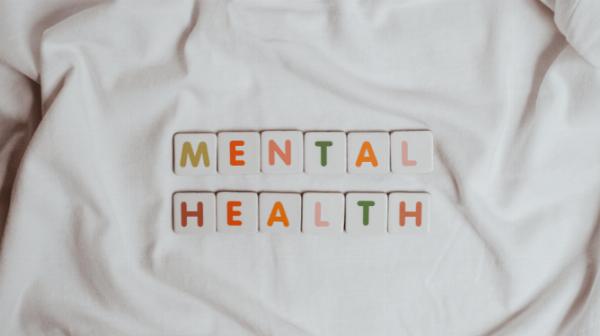Youth Mental Health in India: A Growing Concern That Needs Attention

Strong 8k brings an ultra-HD IPTV experience to your living room and your pocket.
Introduction
Mental health is an essential aspect of overall well-being, yet it often goes unnoticed or ignored, especially among young people in India. The pressures of academic achievement, social media influence, and societal expectations create a challenging environment for today's youth. As we continue to advance as a society, it is crucial to prioritize the mental health of young people and provide the support they need to thrive.
The Current State of Youth Mental Health
Youth mental health in India is a complex issue influenced by various factors. Academic pressure is a significant contributor, with students facing immense stress to perform well in exams and secure admission to prestigious institutions. The competitive nature of the education system often leads to anxiety, depression, and burnout, affecting students' mental health.
The impact of social media on youth mental health cannot be overlooked. Platforms like Instagram, Twitter, and Snapchat have become integral to the lives of young Indians, providing opportunities for connection and self-expression. However, the constant exposure to idealized images and lifestyles can lead to feelings of inadequacy, low self-esteem, and anxiety. The pressure to fit in and be accepted can drive young people to extreme measures, affecting their mental well-being.
The Role of Family Expectations
Family expectations also play a significant role in shaping the mental health of Indian youth. In many Indian households, there is a strong emphasis on academic achievement and career success. While these expectations are often rooted in love and concern for the future, they can create an environment where young people feel pressured to meet unrealistic standards. The fear of disappointing parents or failing to live up to expectations can lead to stress, anxiety, and even depression. Navigating these expectations while managing personal aspirations can lead to significant mental health challenges.
Stigma and Its Impact
Stigma remains one of the biggest barriers to addressing youth mental health in India. Despite growing awareness, mental health is still a taboo topic in many communities. Young people may feel ashamed or embarrassed to seek help, fearing judgment from their peers, family, or society. This stigma prevents open conversations about mental health and limits access to the support and resources needed to address these issues.
The Need for Awareness and Education
Raising awareness and education about mental health is crucial to breaking the stigma and supporting young people. Schools and educational institutions can play a pivotal role in this effort by incorporating mental health education into their curricula. Workshops, seminars, and awareness campaigns can help students understand the importance of mental health, recognize signs of distress, and learn how to seek help.
Community organizations, NGOs, and government initiatives can also contribute to raising awareness. Public campaigns that challenge mental health stigmas, share personal stories, and provide information on available resources can empower young people to prioritize their mental well-being. By normalizing conversations about mental health, we can create a culture of acceptance and support.
Providing Access to Mental Health Resources
Access to mental health resources is essential for supporting the mental well-being of Indian youth. This includes providing access to counseling services, mental health hotlines, and support groups. Schools and colleges can offer on-campus counseling services where students can seek help in a safe and confidential environment. Online platforms and mental health apps can also provide immediate support to those in need.
Training teachers, parents, and community leaders to recognize signs of mental distress and provide appropriate support is another critical aspect of addressing youth mental health. Mental health first aid training can equip individuals with the skills to respond to mental health crises, offer initial support, and guide young people to professional help.
Creating a Supportive Environment
Creating a supportive environment is key to promoting the mental health of Indian youth. This involves encouraging open conversations about mental health, providing safe spaces for expression, and offering empathy and understanding. Schools and communities can implement peer support programs where students can connect with trained peers who understand their experiences and offer support.
Parents and family members also play a crucial role in fostering a supportive environment. By being empathetic, understanding, and non-judgmental, parents can create a safe space for their children to discuss their mental health concerns. Encouraging open communication and validating their feelings can help young people feel heard and supported.
Conclusion
Youth mental health is a pressing issue in India that requires immediate attention and action. By raising awareness, breaking stigma, and providing access to mental health resources, we can support the emotional well-being of young people. It is our collective responsibility to create a society that values mental health and ensures a healthier, happier future for the next generation. Let us work together to support our youth in their journey toward mental well-being.
Note: IndiBlogHub features both user-submitted and editorial content. We do not verify third-party contributions. Read our Disclaimer and Privacy Policyfor details.



